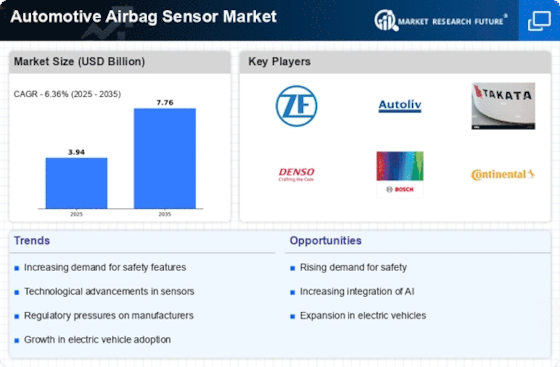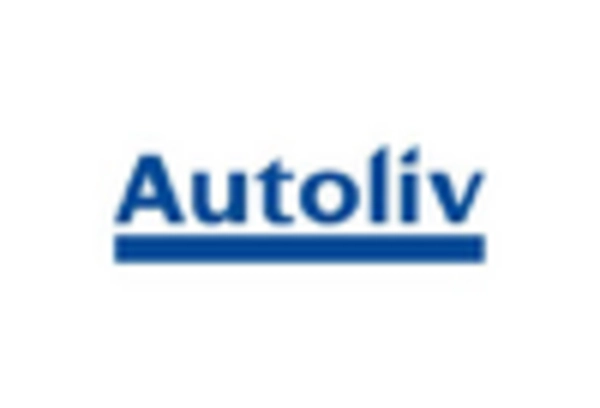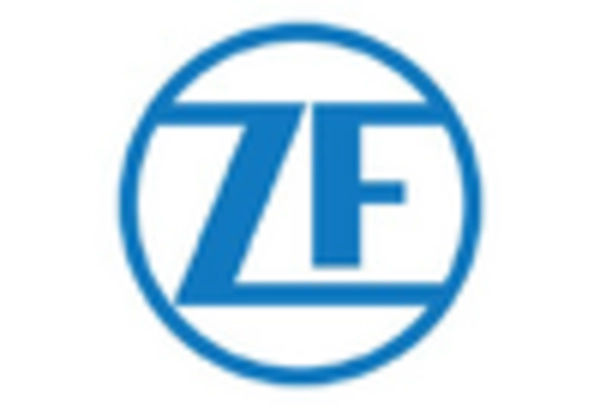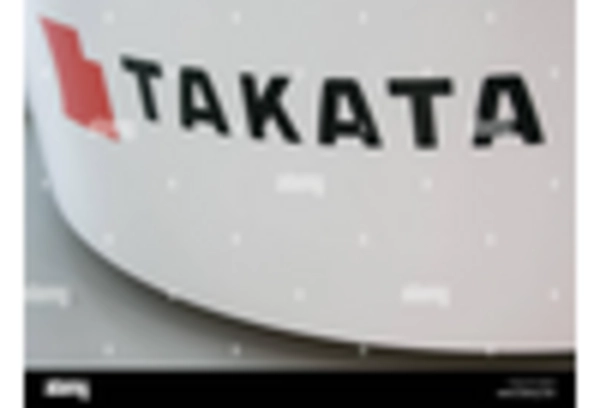Market Share
Automotive Airbag Sensor Market Share Analysis
In the dynamic auto airbag sensor market, organizations send different piece of the pie situating systems to lay out a competitive presence and address the developing safety prerequisites of the car business. Innovative separation is a focal technique, where organizations center around creating advanced airbag sensors. Developments in sensor accuracy, deployment algorithms, and combination with other wellbeing systems add to a separated item collection. These improvements improve the adequacy of airbag deployment as well as address the rising interest for refined security arrangements in contemporary vehicles. Given the basic job of airbag sensors in vehicle security, practical arrangements are especially appealing to car makers looking for solid yet reasonable wellbeing parts. Organizations embracing an expense initiative system can catch a more extensive portion of the overall industry by giving fundamental sensor functionalities at cutthroat costs, interesting to an extensive variety of vehicle sections. Organizations examine the assorted necessities of automobile makers, adapting their sensors to address precise prerequisites for different vehicle types. For instance, sensors intended for smaller vehicles might have various details contrasted with those planned for bigger SUVs or luxury vehicles. This designated approach empowers organizations to advance their market presence and guarantee their airbag sensors are appropriate for clear auto applications. With variabilities in safety guidelines, vehicle types, and car producing practices across areas, organizations decisively extend their presence to take special care of different business sectors. This approach permits organizations to adjust their airbag sensors to nearby necessities, tending to precise difficulties looked via auto makers in various regions of the planet. Moreover, geographic development assists organizations with releasing chances related with reliance on a single market and advance new opportunities in locales with developing auto security mindfulness. Brand situating is basic in impacting client discernments and gaining piece of the pie in the car airbag sensor industry. Organizations that secure themselves as solid, creative, and safety centered can create faith among car producers. A solid brand reputation is particularly pivotal in an industry where the exhibition, unwavering quality, and responsiveness of airbag sensors directly influence vehicle security. Organizations that focus on quality, ceaseless improvement, and consistency with security principles can separate themselves and catch a bigger portion of the overall industry.


















Leave a Comment